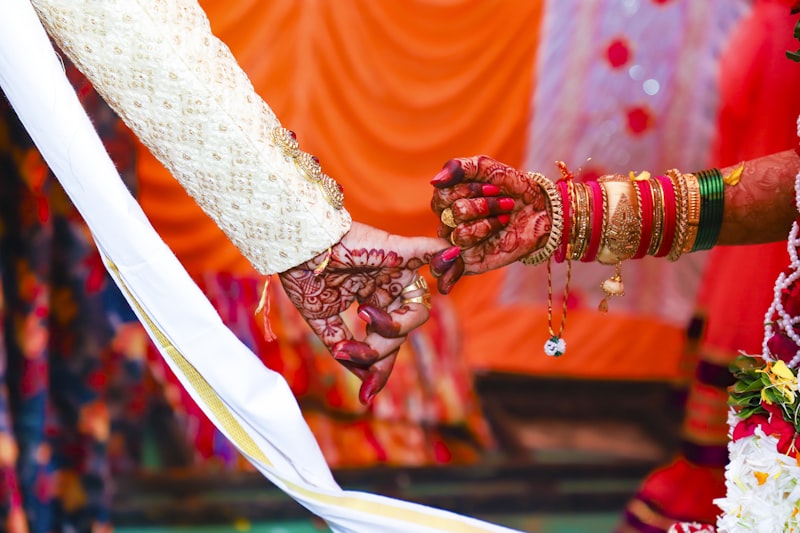Cultural Sensitivity in Serving Diverse Bridal Clients: A Comprehensive Guide
Cultural Sensitivity in Serving Diverse Bridal Clients: A Comprehensive Guide
As the wedding industry continues to evolve, understanding cultural sensitivity in serving diverse bridal clients has never been more important. This article will explore the various aspects of cultural sensitivity, the significance it holds in the wedding planning process, and how to ensure that every client feels understood and valued. By the end, you will have a comprehensive understanding of the nuances involved in catering to diverse bridal clients, and best practices to implement in your services.
Understanding Cultural Sensitivity
Cultural sensitivity refers to the awareness and consideration of cultural differences in communication, celebration, and tradition. When serving bridal clients from various backgrounds, recognizing and respecting these differences is crucial not only for client satisfaction but also for building lasting relationships in the wedding industry.
The Importance of Cultural Sensitivity
Serving diverse bridal clients with cultural sensitivity can lead to several benefits:
- Client Satisfaction: When brides feel understood and their cultural practices are honored, they are more likely to recommend your services.
- Reputation Boost: A reputation for cultural sensitivity can attract a broader client base.
- More Successful Events: Understanding cultural norms can enhance the overall wedding planning experience, making events feel more authentic and meaningful.
Key Areas of Cultural Sensitivity in Weddings
When planning weddings for diverse clients, here are several key areas where cultural sensitivity is essential:
1. Understanding Cultural Traditions
Every culture has its own wedding traditions and rituals. Familiarizing yourself with these traditions can help you to serve your clients better. For example, Asian weddings often include tea ceremonies, while African weddings might incorporate drumming and dancing. Understanding these unique customs is paramount for creating a memorable wedding experience for your clients.

2. Dietary Preferences and Restrictions
Cultural backgrounds often influence dietary preferences. For instance, vegetarianism may be a norm in certain Hindu families, while Halal dietary laws need to be respected for Islamic weddings. Always consult with your clients about dietary restrictions and preferences when planning menus.
| Cultural Background | Common Dietary Considerations |
| Jewish | Kosher food requirements |
| Hindu | Vegetarian meals, sometimes vegan |
| Muslim | Halal food requirements |
| Mexican | Traditional dishes like tamales |
3. Language Considerations
Language barriers can present challenges in communication. Offering services in multiple languages or using interpreters can enhance the experience for clients who are non-native speakers. This gesture demonstrates respect and appreciation for their cultural background.
4. Inclusive Marketing
Make sure your marketing materials represent diverse cultures. Including images of weddings from various cultures can send a strong message that your services are welcoming to everyone. This not only attracts diverse clients but also reassures them that their cultural needs will be met.
Best Practices for Serving Diverse Bridal Clients
Implementing the following best practices can enhance your ability to serve diverse bridal clients:
1. Conduct Thorough Research
Take the time to research your clients’ cultures. Understanding their backgrounds can help you anticipate needs and preferences. Use credible resources, connect with community leaders, or seek advice from colleagues with experience in various cultural settings.
2. Personalized Consultations
Offer personalized consultations to allow clients to express their unique cultural preferences. This dialogue can help you better understand their vision, and clients will appreciate your willingness to listen.
3. Continuous Education
The wedding industry is constantly evolving. Stay current with trends and cultural practices by attending conferences, taking courses, or joining networks focused on diversity and inclusion in the wedding industry.
4. Build a Diverse Vendor Network
To better serve your diverse clients, consider building relationships with diverse vendors. Having a network of professionals who understand and celebrate different cultures can significantly enhance the services you offer.
5. Be Open to Feedback
Encourage feedback from your clients about their experience working with you. Be willing to learn from their insights and make adjustments as needed. This openness demonstrates your commitment to serving all clients effectively.
Conclusion
In today's diverse world, cultural sensitivity in serving bridal clients is not just a bonus; it's a necessity. Understanding and respecting cultural differences can transform the wedding planning experience, leading to happier clients and a flourishing business. Always be proactive in your approach and continuously seek to educate yourself and your team on cultural practices, dietary needs, and celebration styles.
Remember, clients are looking for a personalized and inclusive experience. By implementing the practices discussed and maintaining an open dialogue, you can ensure that you not only meet but exceed the expectations of your diverse bridal clients.
To summarize, embracing cultural sensitivity is not merely about fulfilling a requirement; it is about cultivating a respectful and understanding environment that allows diverse bridal clients to feel celebrated and cherished on their special day.
